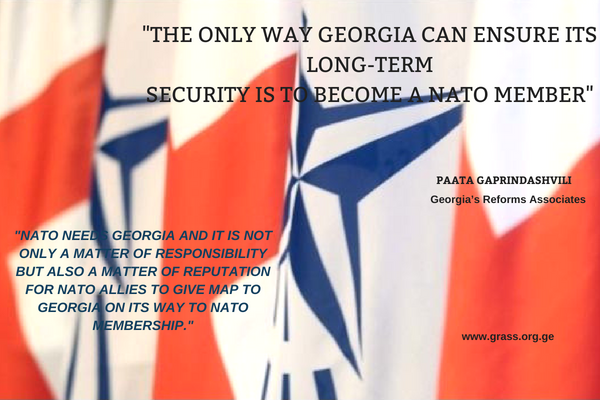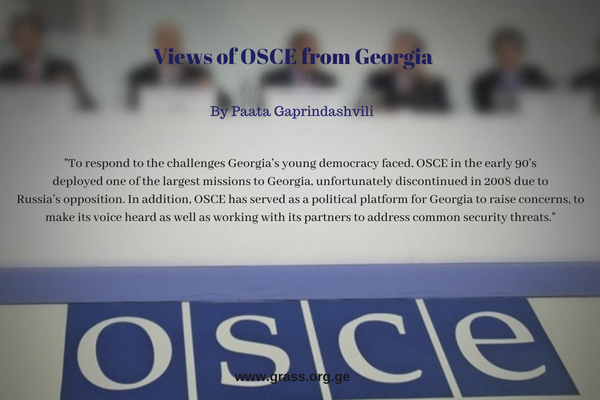EU must act on Georgia’s ‘foreign agent’ law

09 March, 2023
0
Georgia’s new foreign agent law is a watershed moment for the country’s democracy and foreign policy and its adoption could be a point of no return, writes Paata Gaprindashvili.
Paata Gaprindashvili is the director of the think tank Georgia’s Reforms Associates (GRASS).
On March 2, the Georgian Dream majority supported a bill that reminded everyone of the Russian “Foreign Agent” law that eventually put Russian civil society to extinction.
A joint session of the Parliamentary Committees on Defence and Security and Foreign Relations was held amid protests from civil society and the opposition, with some MPs forcefully transferred out of the hearing, CSOs [civil society organisations] not allowed to participate properly and dozens detained.
Registering the draft law was preceded by a discrediting campaign against independent civil society organisations that have been vocal about the democratic backsliding in Georgia.
The ruling Georgian Dream (GD) party leaders have absurdly accused non-profits of undermining peace and stability and conspiring to drag Georgia into the war with Russia.
The part of the Georgian Dream majority that technically initiated the bill had almost a year-long campaign in which EU and US officials were accused of puppet-mastering Georgian NGOs and the opposition in their “harmful projects”.
While some GD leaders falsely claimed that the law is not directed against Western donors, the GD chairman publicly declared that the EU is financing polarisation in Georgia and that this draft law would solve that problem.
The GD-initiated law intends to label NGOs and media with at least 20% funding from foreign donors – that is, almost all Georgian CSOs – as Agents of Foreign Influence. This witch-hunt will target organisations getting Western support and thus, declare US and European donors and international organisations, such as the UN, as suspicious forces.
The GD’s endorsement of the bill equals Georgia turning its back on democratic values, forming an autocratic regime and sabotaging all the work, struggle and aspirations of generations of Georgians on the path toward EU and NATO membership. The law contradicts the constitution that calls upon all constitutional bodies to take all measures to ensure the full integration of Georgia into the EU and NATO.
It has become a textbook case for autocrats to refer falsely to US FARA to justify restrictions against independent voices.
The Georgian Dream has followed suit with the Russian example, falsely claiming that the law is taking cues from the American FARA and that the law aims to increase the transparency of non-profits, not their limitation.
Back in 2012, the author of the Russian law, Alexander Sidyakin, a member of the Duma for United Russia, also argued that the draft was aimed at “ensuring transparency” and would “by no means interfere with [NGO] activities.”
In reality, the law is all about silencing civil society as well as the media by obliging them to register as agents of foreign influence which is equated to the enemy in Georgia. Mechanisms enshrined in the draft law are reminiscent of the spirit of methods used by the Stalinist regime to reveal the “people’s enemy”.
President Salome Zourabichvili has vowed to veto the draft law (which can be easily overridden), arguing that it contradicts the constitution and distances Georgia from the EU. The President went as far as stating that “the activities of all those political parties that contradict the principles of the Constitution and the [Euro-Atlantic] path chosen by our country and its people should be declared unconstitutional and banned.”
Hundreds of Georgian NGOs, media organisations, students, teachers as well as academia publicly condemned the law and all opposition parties oppose it. Western grants and Georgian CSOs have played, and still do, a crucial role in the country’s democratic development, helping vulnerable groups and Georgians who are trying to improve the livelihood of their communities as well as building bridges with communities in the Russian-occupied Abkhazian and Tskhinvali regions, etc.
Apart from undermining democratic freedoms in Georgia, the “foreign agent law” goes against at minimum two of the EU’s 12 priorities that were given to Georgia for achieving EU membership candidacy, therefore contradicting the country’s EU aspirations. In legal terms, the European Court of Human Rights (ECHR) and the European Court of Justice, citing the examples of Russian and Hungarian laws, ruled that they were unjustified as they violated fundamental rights and the EU’s values.
The initiation of the law has sparked outrage from Georgia’s international partners who have repeatedly called on lawmakers not to adopt the law. The US publicly stated that the law would undermine Georgia’s Euro-Atlantic future.
EU officials also raised concerns about the draft law, saying that the law goes against international law and European values.
The ministry of foreign affairs of Norway unequivocally said that the adoption of the bill would negatively affect bilateral cooperation between the two countries. Samantha Power, head of USAID, stressed that foreign agent laws gravely threaten the ability of Georgians to fulfil their own economic, social and other aspirations.
Dunja Mijatovic, the Commissioner of Human Rights of the Council of Europe, sent a special letter to the chairman of the parliament and parliamentarians to reject the draft law.
The GD does not seem to care about the criticism – its chairman absurdly claims that the law will help Georgia to achieve EU candidate status because it will ensure depolarisation in Georgia.
This law is a watershed in Georgia’s democracy and Euro-Atlantic foreign policy and its adoption could be a point of no return.
If the Georgian public is not successful in stopping the adoption of the law now, the EU will have no other resort but to initiate sanctions for human rights violations, against, and not only, politicians in Georgia after the law is enacted and its execution proves disastrous consequences for democracy and rule of law in Georgia.
The country, too, will be sanctioned, since, at minimum, international donors would be gone from Georgia as a result of the execution of this draconic law.
However, before the ship has sailed, the EU should directly and unambiguously warn that MPs voting in favour of the law would be personally sanctioned, including by suspending visa-free travel. Deterrence may still work.



